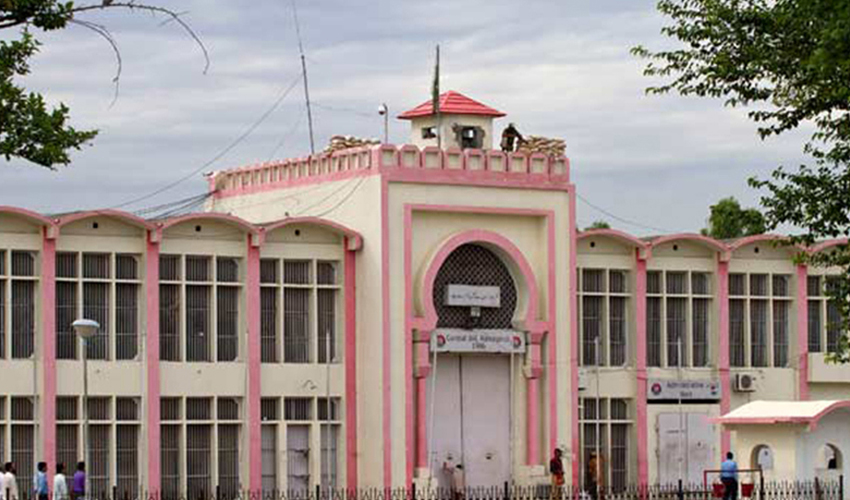Zafar Iqbal
Finance Minister Muhammad Aurangzeb’s visit to Washington this week carries far more weight than diplomatic formalities. As he attends the IMF-World Bank annual meetings and engages with American officials, rating agencies, and global investors, his real task is to rescue Pakistan’s fragile financial credibility. The visit comes at a critical moment when the second review of Pakistan’s ongoing IMF programme has concluded without a staff-level agreement (SLA), stalling the release of the next $1.2 billion tranche — a delay that has rattled markets and investors alike.
The stakes are high. Pakistan’s embassy in Washington had already underlined that the visit’s primary goal is to secure the third IMF tranche and fulfil pending benchmarks under the Extended Fund Facility (EFF) and the Climate Resilience Programme. Yet, progress remains elusive. The IMF has insisted that provincial governments must bear the cost of recent flood damages from their own resources while still maintaining cash surpluses to help the federal government achieve its primary budget surplus target — the central condition of the IMF agreement.
Follow Republic Policy on YouTube
This demand has become a sticking point. The provinces, already struggling with fiscal deficits and limited development space, are reluctant to shoulder both responsibilities. The IMF’s insistence reflects its frustration with Pakistan’s inability to institutionalise fiscal discipline across federal and provincial levels. Other irritants include missed deadlines for publishing governance and anti-corruption reports, delays in declaring the assets of government officers (BPS-17 and above), and the controversial upward revision of last year’s GDP figures — all of which have raised questions about transparency and commitment to reform.
Aurangzeb’s meeting with Jihad Azour, the IMF’s Middle East and Central Asia Director, provided little cause for optimism. Official statements after the meeting offered diplomatic pleasantries about Pakistan’s “reform momentum” and “macroeconomic discipline” but no indication that the long-awaited agreement was near. Despite the minister’s optimism about concluding the SLA during his trip, the Fund’s cautious tone signals that the final deal will take more negotiations and firmer commitments.
Follow Republic Policy on Facebook
This recurring pattern — of missed targets, delayed reviews, and last-minute compromises — has become a hallmark of Pakistan’s engagements with the IMF. The delays suggest not just bureaucratic slowness but a deeper hesitation within Islamabad to fully comply with the structural conditions demanded by the Fund. While Pakistan has repeatedly promised reforms in taxation, energy pricing, and governance, actual implementation remains inconsistent and politically sensitive. Every review has thus turned into a political balancing act between economic necessity and public backlash.
Follow Republic Policy on TikTok
Aurangzeb’s mission is therefore not only about securing the next tranche — it is about restoring confidence. Global investors and bilateral partners are watching closely. The IMF’s delayed disbursements have already discouraged private investment and foreign lending. Without predictable policy continuity, even positive IMF assessments cannot offset the perception of uncertainty. Pakistan’s inability to lock down each review on time sends a troubling message: that the country remains trapped between political expediency and economic realism.
Follow Republic Policy on Instagram
Beyond the IMF, the minister’s meetings with global financial institutions and rating agencies carry symbolic importance. Pakistan’s creditworthiness has been under stress since the 2022 floods and political instability. The delay in IMF funding compounds these challenges, as sovereign risk perceptions worsen. To attract capital and sustain growth beyond the IMF programme, Islamabad must demonstrate fiscal prudence, energy sector reforms, and an institutional framework that ensures accountability and governance.
Follow Republic Policy on WhatsApp Channel
The underlying question, however, is whether Pakistan can break the cycle of dependency. IMF bailouts provide breathing space but not sustainable recovery. For decades, successive governments have relied on short-term loans instead of structural reforms in taxation, energy pricing, and export diversification. Aurangzeb’s challenge is to convince both the IMF and investors that this time is different — that Pakistan can reform beyond compulsion.
The Washington meetings may not immediately unlock funds, but they will test Pakistan’s credibility before the world. If Islamabad fails to finalise the review soon, it risks not just financial strain but also reputational erosion. For a country struggling to revive growth and manage inflation, the cost of uncertainty may prove far greater than any single IMF condition.
















